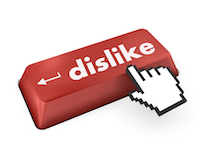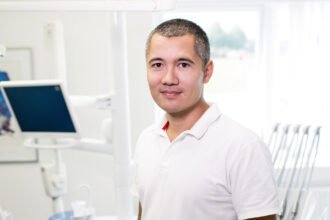 Home health monitoring is going to increase in use over the next few years as doctors and patients seek more information. While the Boomer generation is going to be the target market for the majority of telemedical advances, the group of people most likely to embrace it wholeheartedly is the Millennials.
Home health monitoring is going to increase in use over the next few years as doctors and patients seek more information. While the Boomer generation is going to be the target market for the majority of telemedical advances, the group of people most likely to embrace it wholeheartedly is the Millennials.
 Home health monitoring is going to increase in use over the next few years as doctors and patients seek more information. While the Boomer generation is going to be the target market for the majority of telemedical advances, the group of people most likely to embrace it wholeheartedly is the Millennials. Leveraging the reasons this is so could open up a market as large as the Boomers over the next decade.
Home health monitoring is going to increase in use over the next few years as doctors and patients seek more information. While the Boomer generation is going to be the target market for the majority of telemedical advances, the group of people most likely to embrace it wholeheartedly is the Millennials. Leveraging the reasons this is so could open up a market as large as the Boomers over the next decade.
The Millennials are roughly defined as anyone born who doesn’t remember a time before the commercialization of the Internet. People in this generation have lived in an information saturated world. They don’t like to make decisions without adequate information. In a world of WebMD and Wikipedia, they’re not afraid of challenging medical professionals for more information. They are very slow to trust the word of someone outright without supporting information from another source.
Telemedicine is one way they can get that information at a speed that they’re used to. Hospitals and doctors who make the investment in HIPAA-compliant telemedicine applications will be a step ahead. The key piece of technology in the Millennial’s life is the smartphone. Any application that can give them health information quickly will be welcomed.
Millennials also want to be able to share their experiences with others rapidly through their smartphones, thanks to being raised on social media. Sharing experiences and proof of those experiences is a way that Millennials gain status online. This is one reason why items like FitBit, a device that measures exercise statistics, are popular among this generation. Being able to compare fitness statistics to other people gives them a social boost, or a goad to work harder. Similar apps have already been developed for moms to share their pregnancy experiences.
If lab-on-a-chip technology comes to the consumer level that will open up a whole new level of information. However, is there a risk to having too much information? Perhaps. An indicator that’s off slightly could land you with a worried call about a disease that’s non-existent. Health care professionals may have to get ready to field questions about biomarkers and keep tabs on the accuracy of consumer telemedical devices in order to give accurate diagnoses.
Another marker for the Millennials is their willingness to communicate just through text and video. While video teleconferencing with medical professionals has been around for some time, it is going to be the Millennial generation that pushes it into the mainstream. While there will always be a need for in-person visits, the numbers may drop as the generation ages.
The key takeaway for doctors is to start preparing for these changes now as the Boomer generation passes and the Millennials start to experience more health problems. It will be challenging to switch over to a new way of doing medicine, but by getting in on the ground floor now you can be ready.






